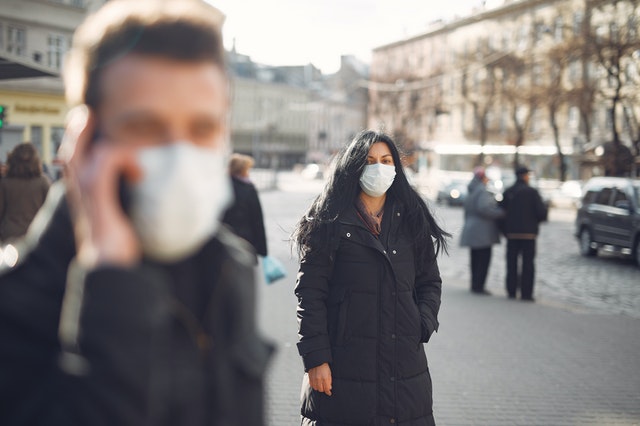 In Seattle, the UW Medicine clinic for post-COVID-19 rehabilitation and recovery is among the clinics around the United States treating “long haulers” or those who struggle with the long-term effects of coronavirus infections.
In Seattle, the UW Medicine clinic for post-COVID-19 rehabilitation and recovery is among the clinics around the United States treating “long haulers” or those who struggle with the long-term effects of coronavirus infections.
Hundreds and hundreds of patients have lingering post-infection symptoms, among which are issues with memory and thinking, Dr. Janna Friedly, clinic director and physical medicine and rehab physician, told EverydayHealth.com.
Estimates show that one-fourth to one-third of COVID-19 patients experience long-term symptoms, even if they were not hospitalized for the illness. Part of these lasting effects is difficulty remembering things as well as finding the right words, including driving directions and where previously familiar things are located. Other common symptoms include fatigue, malaise, anxiety and depression, and brain fog.
Certain genes may be responsible for the risk of severe coronavirus. Interestingly, they are also linked to a greater risk for Alzheimer’s disease, a known degenerative disorder affecting memory and cognition. According to research, brain scans of COVID patients exhibit changes similar to those seen in those with Alzheimer’s.
Here are some ways to combat the forgetfulness and memory problems that may come with post-COVID living:
- Perform yoga and meditate. These alternative therapies, lasting for a couple of centuries now, have become particularly relevant during the pandemic. They help aid mental health as well as strengthen immunity, both crucial factors in your brain wellness. Yoga and meditation have also been associated with increased focus and attention.
- Eat a balanced, nutrient-dense diet. A nutritious diet can make a massive difference in your brain power and memory. Fruits and vegetables are rich in antioxidants, fish can offer omega-3 fats, and seeds, nuts, and legumes are also deemed excellent brain foods. If you don’t get enough of these nutrients in the standard diet, then supplementing with high-quality, organic brain capsules might be worth considering and bring you a good level of convenience.
- Be smart about medication and alcohol intake. Avoid consuming alcohol as much as possible. Also refrain from self-medication as well as taking medicines that might affect the way your brain works. Refer to your physician for professional advice on this.
- Exercise your brain. Try to learn a new activity, hobby, or skill to help keep your brain active and engaged. Crossword puzzles, coloring, and journaling are some sound options, and so is writing with your non-dominant hand. It’s best for mental exercises to complement a physical workout regimen that you regularly do and challenge yourself with.
- Manage your stress. A barrage of stressors can affect your level of health after a bout with COVID. Seek behavioral or psychosocial therapy if you are having difficulty returning to your “normal” life and routine after sickness. There’s hope for long-haulers and the symptoms won’t last forever, so take it easy on yourself and get all the rest and calm you need.
Previous viral illnesses have also been linked with cognitive changes. In the 1918 influenza epidemic, some patients developed nervous system complications after recovery called encephalitis lethargica. Some of those people also developed Parkinson’s disease-like symptoms. In addition, there are viral conditions of the brain where the pathogen gets into the brain itself, including HIV and some herpes viruses.
The good news is recovery is on the horizon. Many patients have become much better and seen improved cognitive issues over time and with rehabilitation methods. What this might tell us is that the impact of COVID-19 on the brain can be temporary – or something we can reverse to some level.
